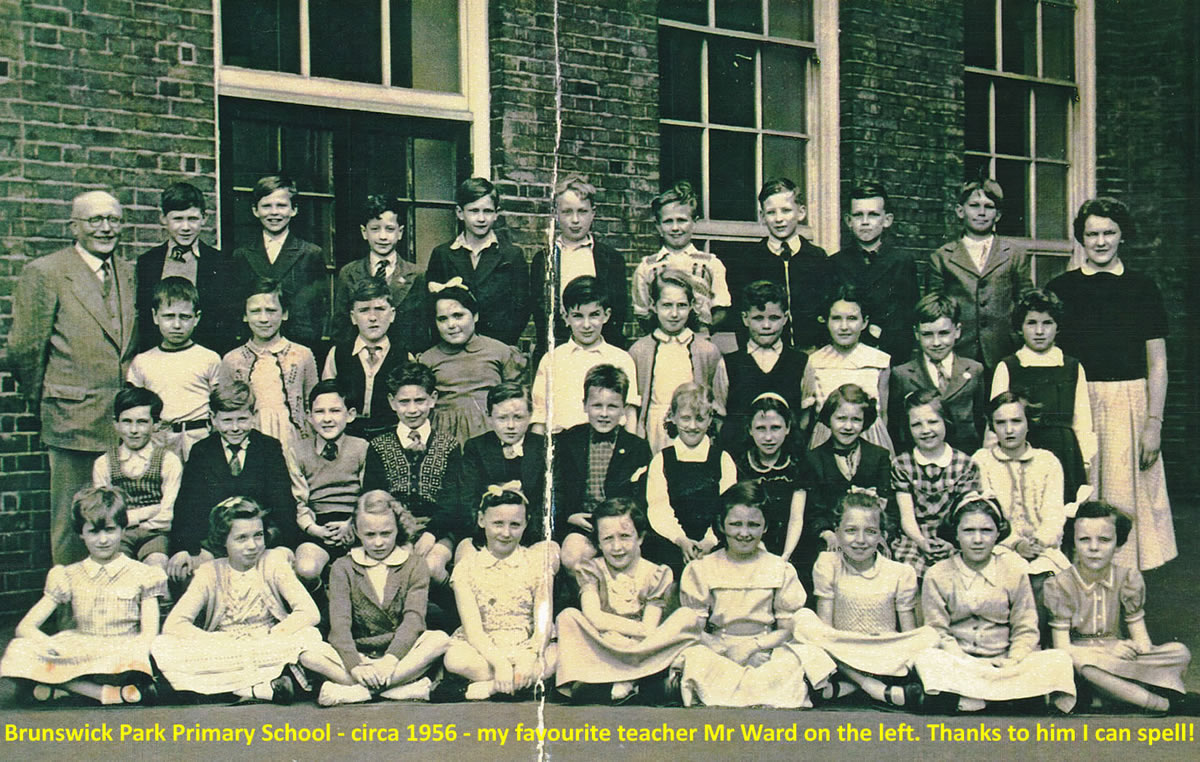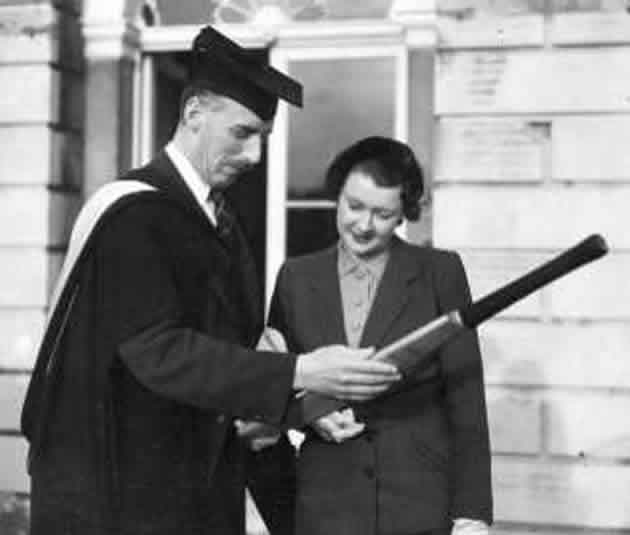| Where Did We Come From? (April 2020) |
Roger Friend: Like Chris Snuggs I arrived for my first term at WHS in September 1958. I grew up at the Angel, Islington and my primary school was Hannover, in Noel Road, N1. I have never come across any other OB that also went to Hannover. Unless anyone comes forward to confirm they also went there, can I claim to be unique? Or are there others as far as they are aware, who are the sole pupils from their own primary schools?
Louis Parperis: The Department of Stealth & Total Obscurity has just confirmed your uniqueness, Roger, and a suitably-equipped unit should shortly be arriving at your home.
Roger Friend: Thanks for the heads up, Lou. Will I be documented in the Lancet?
Michael John O'Leary: I was one of 11 from my primary school in the same year and there were many others who came to Woolvo from other years! So, I'm one of the many opposite to you!
Robin Skinner: Which school?
Chris Snuggs: The so-called Burghley Boys ......

CURRENT WEBSITE: https://www.aclandburghley.camden.sch.uk/
Chris Snuggs: MIKE IS UNIQUE! LOOK AT HIS CLOBBER!!!!
Robin Skinner: Where was it and why so many?
Michael John O'Leary: Burghley Road, NW5, near Tufnell Park Tube station. I think Mr Jackson, the head there, was a friend of Smitherman (or was it Bailey, Baxter? - I went to two secondary schools, Woolverstone and William Ellis).
Jon Kemp: Quite a few over the years from my school in Germany. Even the headmaster's son came: that said, he didn't last long.
Robin Skinner: I was one of three from Park Walk School in Chelsea. The other 2 were my brothers.
Chris Snuggs: I know of no other boy who came from Brunswick Park Primary School, Camberwell .....

Graham Forster: I found 1 boy who came from Fortescue House junior school
Harvey Angel: I came from Churchill Gardens Primary School, London SW1. No others as far as I'm aware. There was at least one murderer and one serial rapist in my class though (not me, before you lot start up)!
Chris Snuggs: Hmmm. Maybe you were just too clever to get caught?
Harvey Angel: I did disarm the rapist when he attacked me with a knife in the school toilets. I think we about 8 or 9 years old at the time.
Michael John O'Leary: I assume you mean the later-to-be rapist!??
Louis Parperis: I thought Chris Curran, Graham Lewis and Robin Williams (all in the year above me) had been pupils at Churchill Gardens.
Harvey Angel Louis: I don't think so, but as you're a walking, talking Wikipedia, you could be right. Might be worth asking them, if you're in touch.
Louis Parperis: Sadly, Graham shuffled off this mortal coil two years ago and I haven’t seen Blubber Lips for many years and Robin Williams not once since he left school in 1967.
Chris Snuggs: Those of us who were the ONLY ones from our primary schools ever to go to WHS? Bit odd, no? Perhaps we were sent as experiments, and when the experiment obviously failed abysmally, they decided to send no more? Anyone got a better theory!!
Mark Anderson: My dad went to Hanover and my mum actually lives just around the corner in Wharf Road! I went to Moreland St and was in Corners 72-79.
Roger Friend: I knew several OBs that went to Moreland St, just across the canal from Hannover. Maybe it was the fumes from the gin distillery that was instrumental in their WHS decision!
Mark Anderson: Yes, Tanqueray/Gordon’s ..... I blame them for my G&T addiction!
David Lewis: I came from Alexander Macleod school in Abbey Wood , S.E.2, and three of us came in the same year, other than myself Mike Taylor ( Johnsons ) and Derek Grimble ( Corners) I am still in regular contact with Derek. As far as I know no others ever came from that school.
Richard Stokes: Edith Neville, Somerstown. George Jackman used to hang around; he had a relative that worked there.
Mark Anderson: George Jackman went to my primary school: Moreland Street. I think he had a brother who went to Woolvo, too!
Chris Snuggs: One rather sad thing about going to WHS was that as we moved from Camberwell to West Norwood just before I went to WHS I lost touch with my primary school friends. No, I didn't try hard enough to stay in touch, but it wasn't so easy in those days and of course WHS kept us all so busy. I spent the holidays mostly on my own waiting impatiently to get back to school!
Roger Friend: That was one of the downsides for me. I lost touch with most of my mates from primary as during the holidays, they were always doing things with their new pals and I felt isolated. During the school holidays I tended to meet with Other WH colleagues. I picked up with some after school and am still in touch with a few now.
John Tuddenham: I think I'm the only one from Holy Trinity, Hampstead, too.....
Richard Stokes: I think Edith Neville played Holy Trinity at football.
John Tuddenham: I went to WH in 1952 .... I played football for Holy Trinity, but more importantly, I captained St Pancras Juniors .... before going to my Rugby school!! My name at that time was John McGown ... changed to my stepfather's in 1956. That was fun at WH!! Caused a bit of confusion ....
David Waterhouse: As an outsider looking in – I came from a BFES school in Germany via secondary schools in Kent – it occurs to me that there may have been London primaries where WHS was seen as an opportunity for bright boys, hence the experience of those such as Michael John O'Leary who came mob-handed, while others may have disapproved of 'privilege' and 'elitism', or single-sex education, and sent few or none at all. Does anybody know of schools that never sent anyone to Woolverstone?
Robin Boot: I joined WH from BFES Hildesheim (British Forces Educational Services). Apparently one of my father’s military friends, who had two boys there (no idea who though) recommended the place. We visited the family and I was given a pair of winkle-pickers which were too small for the boys. My headmaster apparently also knew all about WH.
Philip Hart: As a pupil of Manorfield Primary, I WAS THE ONLY ONE TO ENROLL IN WOOLVO. AM I UNIQUE TOO?
Allister Hutchings: Similar story to that of Robin Boot. Parents of one of my classmates were hoping their son would be eligible for Woolvo. They were from Ipswich, and mentioned this to my parents. So that was that: BFES Lemgo to Woolvo. I went to a school in Northern Ireland; the school there may have been BFES, as I don’t recall straying very far from the married quarters to attend it, but it may well have been a normal school run by the local education authority.
From there to Munster, in Germany, then to BFES primary in Kowloon, then to Fort Stanley, Hong Kong, then to Lemgo, Germany, and then to Woolvo. There were more kids there than I’d seen before. I can’t recall any previous school having more than about 100 kids in total, and most classes were around 14 kids. The teachers lived amongst our parents, and we often had teachers in our homes on social occasions. In Lemgo for instance, 5 of our 7 teachers lived within about 200 metres from us. I think I had a brilliant education from them, but when I got to Woolvo, I knew absolutely nothing of chemistry, realised I was lagging in maths, and found the teachers aloof -
took a while to adjust. The biggest drawback however, was school holidays. I’d lost the day-to-day interaction with kids I’d known for years, and holidays could be a bit of a drag. The other drawback, the regiment was returned to the UK from Aden, but the families were not either within or close to the barracks, so day-to-day contact there was lost, too. I did enjoy Woolvo, but circumstances arose where I felt it necessary to leave, which I may occasionally regret, but would still take the same course of action.
Nick Brackenbury: I came from St Matthias Church of England Primary School, Earls Court, SW5. The two Daish brothers attended and my older brother Andrew, who led the way to Woolverstone for the rest of us.
Nick Brackenbury: To this day, I remember my interview with Smitherman: a kind, interesting and charismatic man.
(PS: John Smitherman's "Janus" article in 1972)
 |
 |
David Waterhouse: There could be an interesting story here. BFES provided local primary schools, but secondary schooling was at BFES boarding schools which, so far as I know, were early comprehensives. Woolverstone provided a grammar school element and headmaster Smitherman, who had headed one of the BFES boarding schools, might have been instrumental in bringing that about. These were the days of national service and there was a general belief that what was good for the armed forces was good for the country. A lot of money was spent educating servicemen and training them as technicians, mechanics, cooks, etc - skills that they would carry into civilian life.
Some chose to sign on for a career in the services and those would be the ones whose children would eventually need secondary education. London was predominantly British in those days and about 15% of the population, so presumably about the same proportion of the armed forces. I think the LCC may have felt some responsibility for its citizens serving in the military - it was a very different world . . .